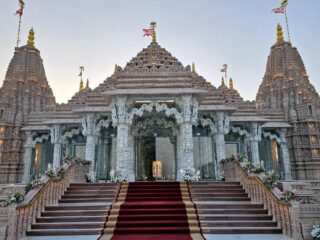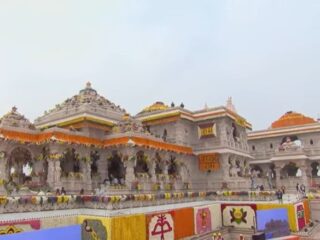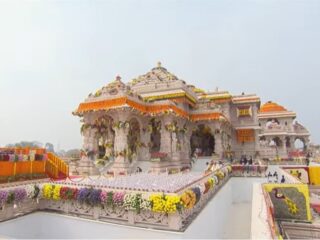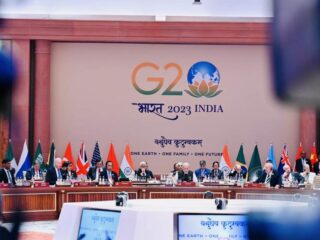Asghar Ali Engineer
(Secular Perspective Feb. 1-15, 2012)
Mr. M.C.Razmin of Sri Lanka Development Journalist Forum invited me to conduct a workshop for his media workers on Muslim women’s rights from 10th to 14th January 2012 in Colombo. Among the participants there were some university students and some media persons and broadcasters. They had done considerable work on problems of Muslim personal laws in the field. This field work which was presented in the workshop indicated the kind of problems Muslim women faced in Sri Lanka.
In Sri Lanka Muslims are about 7.5% of its population, majority of whom speak Tamil. There are also some Muslims of Malay origin as well as Muslims of Indian origin. Among Muslims of Indian origin are mainly traders like Memons, Khojas and Bohras. These Muslims of Indian origin are quite rich and more organized. Tamil Muslims are followers of Shafi’I Mazhab in jurisprudence. Bohras and Khojas follow Isma’ili School whereas Memons are Hanafites.
There is no Muslim personal law board but traditional law is enforced as in India and the Ulama naturally oppose any change in the law. There is very poor awareness even among the educated Muslim women about their rights and as in India they think Shari’ah laws are totally divine and immutable. Mr. Razmin, a post-graduate in ‘Feminism’, is trying to create awareness among Muslim women for change. He had been reading my articles and papers on women’s rights in Islam and hence invited me to conduct this workshop.
I reached Colombo on 10th early morning changing my travel schedule as I thought it is more important than other seminars and workshops. After January I could go only in April due to several commitments which were not easily adjustable. I have three priorities in my life – inter-religious peace and harmony, social reform and change, and women’s rights, particularly Muslim women’s rights. Thus I gave priority to the Muslim women’s workshop and reached Colombo on 10th January morning.
I had been to Colombo several times in the past, but this time I had gone after several years as the civil war ended. However, I did not find much change in Colombo except that the airport has been made more spacious compared to the old; and I did not find many gun wielding soldiers in the city. One pleasing thing about Colombo is that it is not a concrete jungle with tall buildings. Colombo is remarkably cleaner city than Mumbai.
II
Our workshop began in the office of Sri Lanka Development Journalist Forum at 11 a.m. with Mr. Razmin’s teammates. First they presented their field report which was based on interviews of several women in Muslim areas in a few districts in South Sri Lanka. It seems, polygamy is the main problem Sri Lankan Muslim women face. Thankfully there is no problem of triple divorce as in India though Shafi’u Mzhab also permits triple divorce in one sitting.
Most of the women have to face the problem of co-wives. In some cases they abandon first wife and marry another one and in many cases they marry more than one wife. They were thus keen to know whether Qur’an permits polygamy unconditionally as a privilege for men. This is how it is projected by the Ulama in Sri Lanka. They tell women that Allah has given this privilege to men to marry four wives simultaneously.
In order to put the whole thing in perspective I first began by throwing light on women’s plight in pre-Islamic Arabia. I told them that situation varied from place to place. One situation prevailed in Mecca, an urban area which was also a centre of international finance and trade and where tribals had formed inter-tribal trade corporations and were quite prosperous. Another situation prevailed in Madina, an oasis and primarily an agricultural area which was quite fertile due to fertile soil. Madina had Jewish population also who followed written law of Torah.
Third situation prevailed in desert areas where nomadic Bedouins lived. Whereas Mecca and Madina were urban settled areas with considerable population following age old traditions. Nomads, on the other hand, did not live at one place and their traditions and customs varied from tribe to tribe. Among Bedouins there were some tribes where polyandry prevailed and there are instances of one woman having around 10 husbands. In Mecca there are, on the other hand, instances of one man having 10 wives. Of course polyandry was more of an exception than rule among the Bedouins.
The Arab society, like other societies, was fiercely patriarchal society and one cannot expect patriarchal societies to empower women. In fact for women empowerment patriarchal societies are main obstacles. In Mecca women’s situation was very precarious and in initial stages women responded to Islamic mission quite enthusiastically and one of the first respondents was Prophet’s (PBUH) wives and subsequently also many women responded before their husbands or sons did.
Another common feature in all three categories mentioned above was absence of any written law. Everything depended on oral traditions. Thus Qur’an came as a first written text containing definite laws in respect of women. Also I told them, Qur’an gave women equal status with men and concrete rights in respect of marriage, divorce, inheritance, property etc. without asking for it. They did not have to demonstrate or agitate or even they did not expect it in their dreams and got equal rights whereas in the West they had to come out on streets to get those rights. They had to agitate and got these rights only in early twentieth century. Qur’an gave them 1400 years ago without asking for it.
For the first time they got written rights in a region where literacy was as good as non-existent. No doubt women responded to Islam enthusiastically. I also explained to them grave misunderstanding about polygamy. It is not, according to the Qur’an a privilege but responsibility for men. This verse about polygamy i.e. verse 4:3 was revealed after 2nd battle the Prophet (PBUH) had to fight in which 10 per cent of Muslim men were killed leaving behind widows and orphans.
The Qur’an asked men to look after these widows and their property and children, and if they could not marry those widows up to four as they feared they could not do justice to all four they should better marry at least one. Thus it is clear from this verse on polygamy that they cannot marry any woman they like but only war widows and that too with stringent condition of justice. It is a great responsibility and not privilege in any case. Muslim men were also advised to look after widow’s children which was even greater responsibility, but later on the verse was abused by men in patriarchal society only to marry more wives and treat it as their privilege. It is gross distortion of the Qur’anic responsibility thrust on men. And verse 4:129 makes it further clear that even if men want, they cannot do justice with more than one wife without leaving first wife hanging in the air. This verse is more than clear that monogamy is the rule and polygamy is an exception for exceptional situation to help needy widows with children who cannot look after their properties. A great responsibility indeed.
One day i.e. 13th of January was kept for women working in various NGOs to clear their doubts about the rights of women in Islam. A woman who was studying law in the university, asked whether it was not the duty of Muslim woman to obey her husband, quoting a hadith from Bukhari. She was very much insistent that a Muslim woman must obey her husband and could not go out of her house to get medical aid in his absence even if her father was severely sick or even dying.
I told her there is no such thing in Qur’an, and it nowhere requires wife to obey her husband but instead advises both to do anything with/by mutual consultation. In fact entire discourse in Qur’an about women is right based and entire discourse about men is duty based. How can then wife be made obedient to husband? Both are independent agents and can act independently as mature moral agents without being subservient to each other.
I also told her, “Qur’an does not even use the words, husband and wife, but uses the word zawj and zawjah or simply zawj which abundantly makes it clear that both are absolutely equal (zawj means couple). In Arabic husband was called ba’ul which was one of the gods of pre-Islamic pantheon and Qur’an does not want to give husband such a status”. Unfortunately she kept on insisting that hadith could not be wrong. I told her, “hadith cannot be above Qur’an or contradict Qur’an. Such hadithes were used in a patriarchal society to make women subordinate to men, and women being ignorant of Qur’an accepted these hadith without critically examining them in the light of Qur’an”.
Another common abuse of women in Sri Lanka is wife beating. They maintain, Qur’an permits wife beating as per verses 4:34. I told them, “in fact this verse was revealed when a woman complained to the Prophet that her husband slapped her without any flaw on her part; the Prophet (PBUH) allowed her to retaliate. How can then Qur’an allow wife to be beaten? The word daraba is wrongly translated. Qur’an itself uses it in more than 12 different senses. It can in no way allow wife beating. Our Ulama also suppress another verse 33:35 which is very important verse about gender equality in Qur’an”.
I discussed host of other questions including woman as half witness, her property rights and question of inheritance. Women were extremely happy, as for the first time someone told them with great emphasis that women are equal to men and enjoy all those rights which men do, nay are bit more privileged in some respects.




